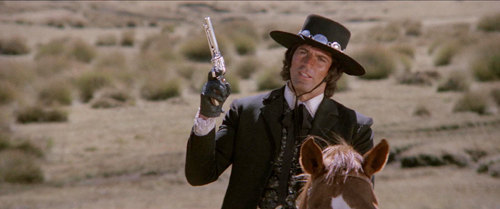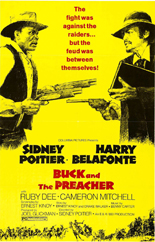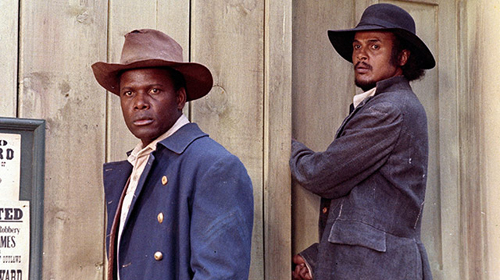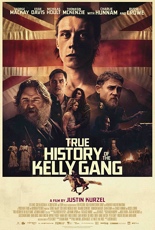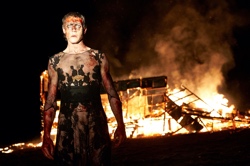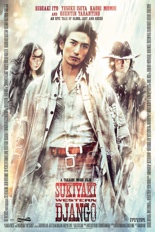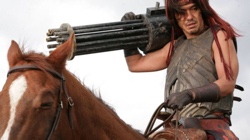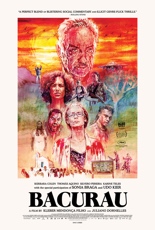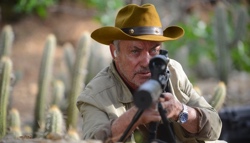
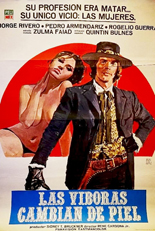 Two guys I could not tell apart head to Santa Fe for a shared purpose: a burnin’ yearnin’ to kill its sheriff. That’s because the lawman put one behind bars and stole the other’s wife — both valid reasons for a Western, although no longer (?) for modern day. When they meet horny gunslinger El Pistolero (Jorge Rivero of Lucio Fulci’s Conquest), surrounded by bar hussies, they hire him to pull the trigger.
Two guys I could not tell apart head to Santa Fe for a shared purpose: a burnin’ yearnin’ to kill its sheriff. That’s because the lawman put one behind bars and stole the other’s wife — both valid reasons for a Western, although no longer (?) for modern day. When they meet horny gunslinger El Pistolero (Jorge Rivero of Lucio Fulci’s Conquest), surrounded by bar hussies, they hire him to pull the trigger.
El Pistolero is the perfect man for the job. “Blood calls for more blood. And our crimes leave a long, red chain,” he tells his dual temp employers over a campfire. “That’s why I prefer my whores.” (Recruiting tip: As with references, leave your choice of sexual partners off your résumé until specifically asked for.)
Guys, he really does love those whores, though. When the trio tracks the sheriff (Quintín Bulnes, Isle of the Snake People) to a monastery, El Pistolero sneaks out after supper to play strip poker with a table full of local floozies.
But enough of the ladies; does Guns and Guts have guns and guts? It does! Although I expected more cheesiness from Mexploitation prince René Cardona Jr. (cf. The Night of a Thousand Cats, Guyana: Cult of the Damned, Tintorera: Killer Shark), he delivers, per the subtitles, a fist-thunderin’, men-gruntin’, objects-clatterin’ Spanish-language Western. It’s packed with Sam Peckinpah-style bloodshed, prostitute nudity and at least one spirited round of human piñata. —Rod Lott

